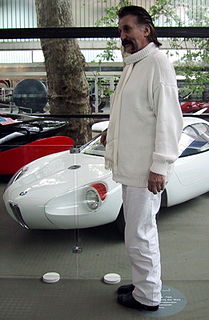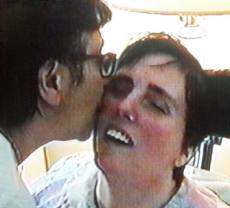A Quote by E. O. Wilson
We don't even know what species are out there, for the most part, particularly when you get down to the microbes and very small invertebrates. They make up the mass of the organisms around us, including the soil we depend on, the soil of cornfields as well as hardwood forests. We haven't taken ecology to the point where we can even make a crude prediction of what's going to happen when we've reduced the living world down to a certain level.
Related Quotes
Every ecosystem, even a small one, is sustainable because it has certain ensembles and conditions and influences that are unique to it. And the biological ensembles are almost certainly, even the most modest ones, in the thousands of species. We don't know what's involved in the models - not even the beginnings. And yet we're trying to make a sustainable world, which has to include the natural world. The human species is triumphant, but it's got to get a grip. It's got to come to understand what's happened, why we're this way and what we're doing.
The human species is now at a point where it has to make choices that are going to determine whether decent survival is even possible. Environmental catastrophe, including war, maybe pandemics, these are very serious issues and they can't be addressed within the current structure of institutions. That's almost given. There have to be real significant changes, and only really effective popular mass-based movements can introduce and carry forward such initiatives, as indeed did happen during the 1930s.
I'm amazed at how much my writing is improved when I step away from the computer, even in small amounts. If I'm stuck, I vacuum the living room or walk the dog. I'm amazed at what comes out of that... We have to realize that part of the writing life where we're sitting down at the computer is harvesting the crops, but you have to have planted them and watered them and created fertile soil - and that's a life.
Even if you could use all the organic material that you have--the animal manures, the human waste, the plant residues--and get them back on the soil, you couldn't feed more than 4 billion people. In addition, if all agriculture were organic, you would have to increase cropland area dramatically, spreading out into marginal areas and cutting down millions of acres of forests.
The earth is round, all the heavenly bodies are round; they all move on round or elliptical orbits. This same image of circular globe-shaped mini worlds orbiting around each other follows us right down to the microcosmos. We are even aroused by round forms in species propagation related eroticism. Why should I join the straying mass who want to make everything angular? I am going to pursue Galileo Galilei's philosophy: my world is also round.
I wouldn't even feel sorry for us if I was going against us. I know teams are licking their chops. The Bulls or Milwaukee, they're excited. Even though somebody is hurt they're still excited because they feel like we're a man down and we might not be as strong, but we're confident here. We got the players to still make something special happen. Guys just have to step up as a unit.
There are millions and millions of species, including organisms most people have never heard of. There is so much that waits to be told. We don't know the functions of most of them, but they may be more vital for the planet's future sustainability than we can even dream. And we have to find out; we need to be doing this sort of study.
Early ecologists soon realised that, since humans are organisms, ecology should include the study of the relationship between humans and the rest of the biosphere. ... We don't often tend to think about the social sciences (history, economics and politics) as subcategories of ecology. But since people are organisms, it is apparent that we must first understand the principles of ecology if we are to make sense of the events in the human world.
You are an American, so you're hurt that other American citizens have been hurt, but you end up having to shoulder the shame for something that you don't even believe. There's a lot of years where Muslims have dealt with having to make themselves very small and not disrupt the flow and not - make sure that you're not noticed because, you know, deep down inside people are not really excited that you're around .
Who wants to become a writer? And why? Because it's the answer to everything. ... It's the streaming reason for living. To note, to pin down, to build up, to create, to be astonished at nothing, to cherish the oddities, to let nothing go down the drain, to make something, to make a great flower out of life, even if it's a cactus.
It's as if the whole notion of growing soil is something only lunatics would think about. But why not grow soil? Does anything make more sense than growing soil? Isn't that more important than tractors, trucks, silos, barns, county fairs and country music? Of course it is. And yet to the lion's share of American farmers, the very notion of growing soil is just plain silly.


































